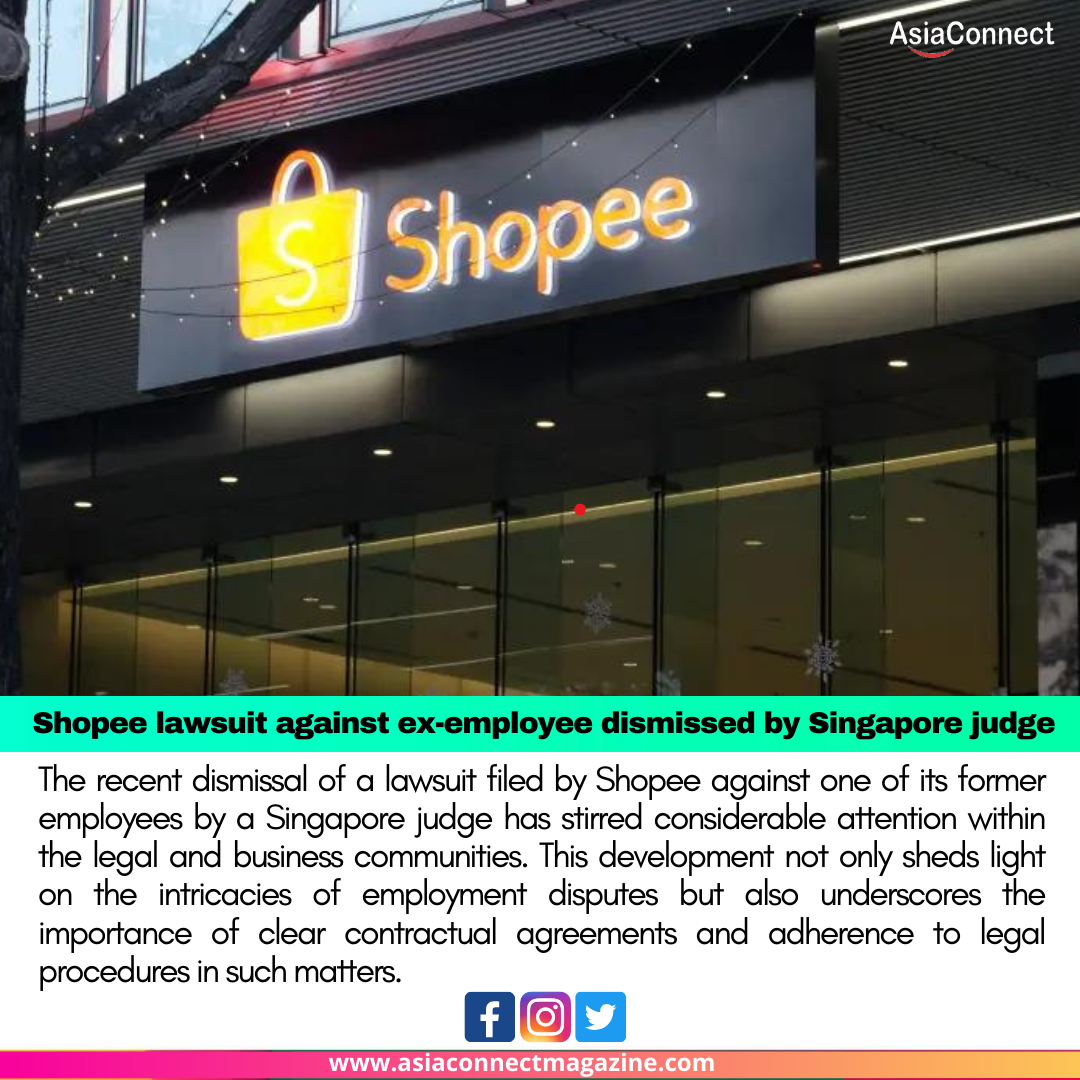In a recent legal development, a lawsuit filed by Shopee against a former employee has been dismissed by a Singapore judge, marking a significant turn in the ongoing legal battle between the e-commerce giant and its ex-employee. This decision has garnered attention within legal circles and the business community, shedding light on various aspects of employment contracts, confidentiality agreements, and the legal rights of both employers and employees in the context of intellectual property protection and trade secrets.
The lawsuit stemmed from allegations made by Shopee, a leading e-commerce platform operating across Southeast Asia, against one of its former employees, who had subsequently joined a competitor in the region. Shopee contended that the ex-employee had violated confidentiality agreements and non-compete clauses by allegedly disclosing sensitive information and trade secrets to the competitor, thereby seeking legal recourse to protect its interests and intellectual property rights.
However, the Singapore judge’s decision to dismiss the lawsuit signifies a nuanced interpretation of employment contracts and confidentiality agreements within the legal framework of Singapore. While acknowledging the importance of protecting intellectual property and trade secrets, the judge emphasized the need for clear and unambiguous contractual clauses delineating the scope of confidentiality obligations and non-compete restrictions imposed on employees.
The judge’s ruling underscores the significance of drafting precise and enforceable employment contracts that delineate the rights and obligations of both employers and employees concerning confidentiality, non-disclosure, and non-compete provisions. Ambiguities or inadequacies in contractual language may potentially undermine the enforceability of such agreements, as evidenced by the dismissal of Shopee’s lawsuit against its former employee.
Furthermore, the case highlights the complexities surrounding employee mobility and the legal constraints imposed on individuals transitioning between competing organizations. While employers have legitimate interests in safeguarding their proprietary information and preventing unfair competition, employees also possess certain rights, including the freedom to pursue career opportunities and livelihoods in their chosen fields.
In light of the dismissal of Shopee’s lawsuit, businesses operating in competitive industries are reminded of the importance of implementing robust measures to protect their intellectual property and trade secrets, including the implementation of comprehensive confidentiality protocols, employee training programs, and periodic reviews of employment contracts to ensure compliance with relevant legal requirements.
Moreover, the case serves as a cautionary tale for employers regarding the potential limitations of legal recourse in cases involving alleged breaches of confidentiality and non-compete agreements. While pursuing litigation may seem like a viable option to address perceived violations, the outcome can be uncertain, particularly if contractual provisions are deemed ambiguous or unenforceable under applicable laws.
As the legal landscape continues to evolve, businesses are encouraged to adopt proactive strategies to mitigate risks associated with employee departures, including the implementation of robust intellectual property protection measures, fostering a culture of compliance and ethical conduct, and seeking legal counsel to draft and review employment contracts to minimize ambiguities and maximize enforceability.
In conclusion, the dismissal of Shopee’s lawsuit against its former employee by a Singapore judge underscores the complexities surrounding employment contracts, confidentiality agreements, and the legal rights of employers and employees in the realm of intellectual property protection and trade secrets. This development serves as a reminder for businesses to prioritize clarity and precision in drafting contractual provisions while adopting proactive measures to safeguard their proprietary information and mitigate risks associated with employee mobility in competitive industries.





